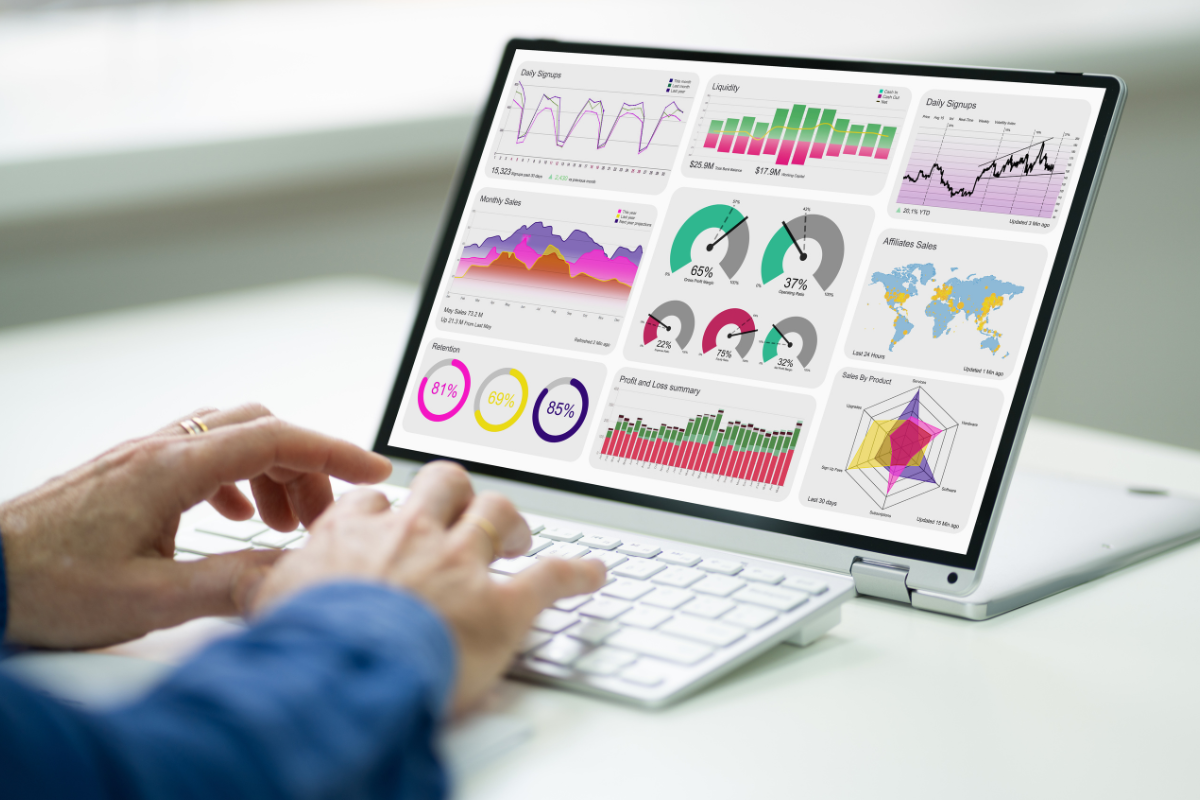
The Benefits Of Dashboard Reporting For Decision-Making
Posts by StephenNovember 10, 2023
In the age of data-driven decision-making, understanding and digesting large volumes of information is essential. One tool that has grown in popularity for this task is dashboard reporting.
But what makes it so vital to effective decision-making? In this article, we’ll delve into the benefits this approach offers.
Understanding The Importance Of Dashboard Reporting
The phrase ‘dashboard reporting’ may sound technical but its essence is pretty straightforward.
Dashboard reporting refers to visual displays of important information necessary for achieving one or many objectives.
This data is consolidated and arranged conveniently on a single screen, allowing for instant and easy comprehension of vast quantities of data.
Dashboard reporting offers several benefits, including enhanced data quality, streamlined business processes, and increased productivity.
The use of these visual representations simplifies data interpretation and understanding, aiding prompt decision-making.
You can quickly identify patterns, trends, and outliers in your data, getting an accurate pulse of your operations.
Moreover, with dashboard reporting, data is updated in real time—information is always current, ensuring decisions are made based on the freshest possible data.
This timeliness and accuracy ultimately lead to better, more informed business decisions.

Vital Role Of Dashboard Reporting In Data Visualization
We’re in a world where data is collected and analyzed every second. However, raw data can be complex and hard to comprehend. Hence the need for effective data visualization.
Data visualization makes it easier to understand the meaning of data. In comes dashboard reporting—a powerful and efficient tool for data visualization.
With its interactive and intuitive interface, it simplifies and enhances the process of understanding data.
Dashboard reports represent data graphically (e.g., charts, graphs, pictograms), highlighting key aspects for easy comprehension.
Decision-makers can, therefore, quickly grasp essential business insights without getting lost in a sea of numbers.
Effectively, dashboards are the bridge that transposes raw, complex data into visually appealing, understandable information that aids strategic decision-making.
Boosting Decision-Making Processes With Dashboard Reports
Alt text: A man is sitting at a desk working on dashboard reporting on a dual-monitor desktop computer.
Decision-making is a fundamental aspect of any business operation. How innovative and rapid these decisions are can affect a business’s performance and its competitive edge.
The utilization of dashboard reports aids these decision-making processes by providing a comprehensive picture of business performance. This, in turn, enables managers and leaders to make informed decisions promptly.
With the insight provided by dashboard reporting, businesses can predict market trends, respond to changes, and capitalize on new opportunities.
Not only does this boost decision-making but enhances strategic planning and forecasting too.
Developing a culture of data-driven decision-making through dashboard reporting provides a strong foundation for continuous improvement and agile response in a dynamic business environment.
Frequently Asked Questions (FAQs)
1. What Exactly Is Dashboard Reporting, And Why Is It Such A Big Deal For Decision-making?
Dashboard reporting is basically about making visual presentations of significant data to assist us with accomplishing our objectives.
It’s a big deal for decision-making since it takes complex information and presents it in a straightforward organization, making it speedier to get a handle on enormous volumes of data.

2. What Are The Principal Benefits Of Utilizing Dashboard Reporting?
Dashboard reporting offers a few advantages, such as further developing information quality, smoothing out business processes, helping efficiency, improving on information examination, staying up with the latest progressively, and settling on our decisions better educated.
3. How Does Dashboard Reporting Improve Understanding Of Data?
Dashboard reports use outlines and charts to make information more visual and less scary. This makes it much simpler to recognize patterns, examples, and exemptions in the information, speeding up our decision-making.
Choosing The Right Dashboard Reporting Tools For Your Business
With the undeniable impact of dashboard reporting, the question then arises—how do you select the right tool for your business?
When selecting a dashboard reporting tool, it must be user-friendly and offer a variety of visualization options that suit your business needs.
The tool should be able to access data from various sources and provide real-time reports.
The best tool for your business depends on your objectives, the size and complexity of your operations, and your budget. A trial and error method may be required to find the perfect tool that suits your business needs.
Overall, the investment in a robust dashboard reporting tool often pays for itself by providing valuable insights, aiding swift decision-making, and ultimately improving business performance.
Altogether, the use of dashboard reporting in business operations is no longer optional, but vital.
Whether it’s boosting decision-making, enhancing transparency, or improving overall business performance, dashboard reporting is the catalyst that drives businesses forward in a competitive, data-driven world.
